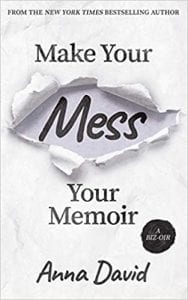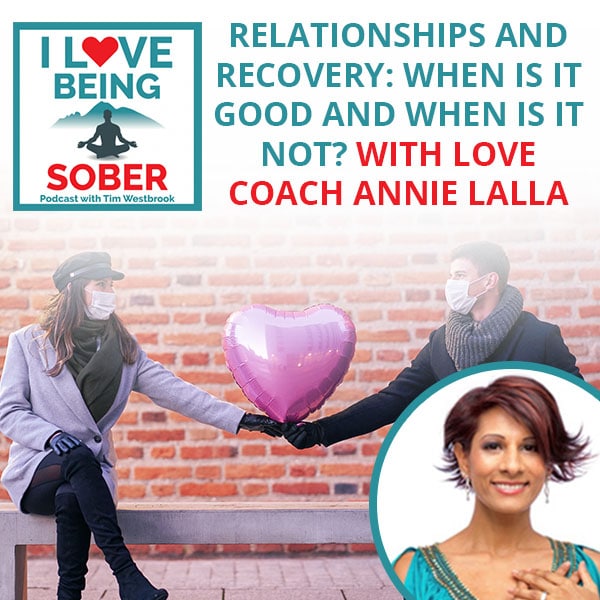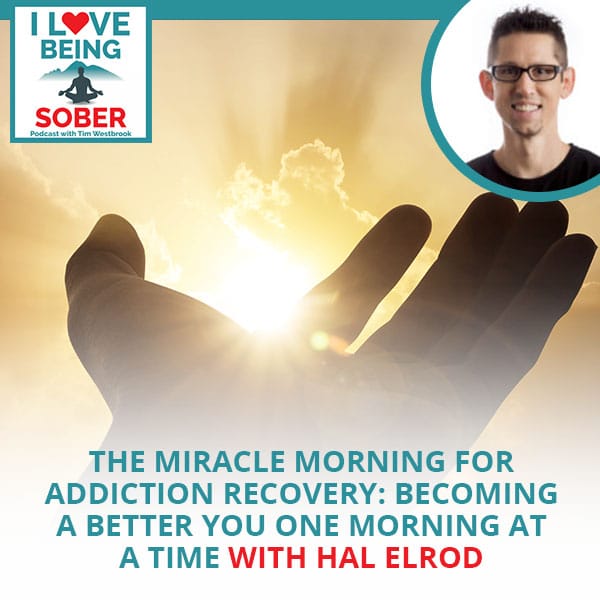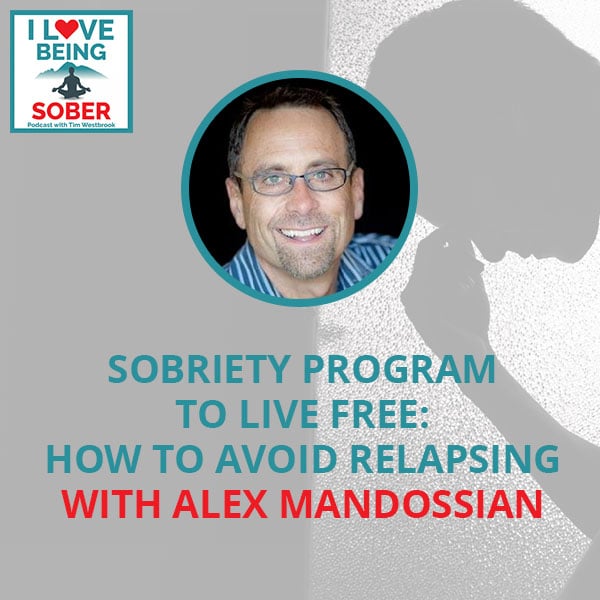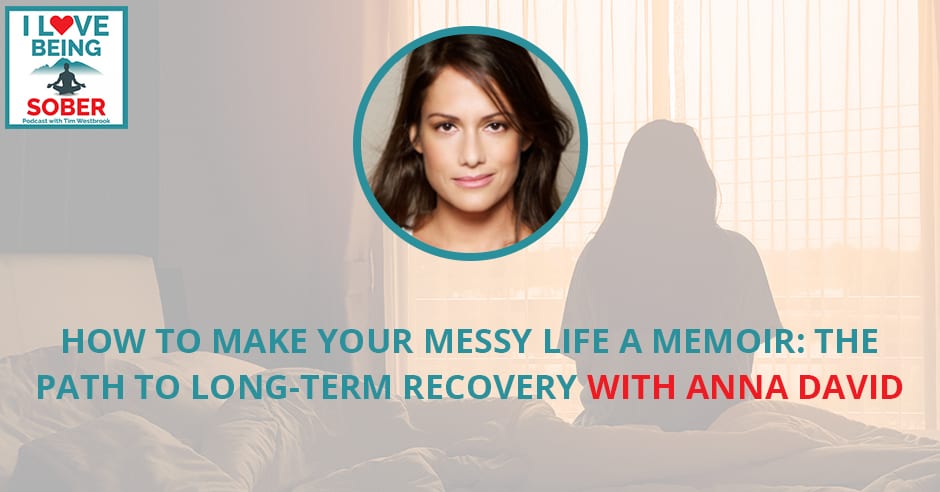
Following the path towards recovery is not an easy feat. So when one is long on their way at it, we can call for a celebration! New York Times bestselling author of eight books, Anna David is a person in long-term recovery, having recently celebrated her 20th year! In this episode, she takes us behind the work she has to put upon herself to live a happy, joyous, and free life. Her journey shows us that the path to long-term recovery is more than just to stop drinking, taking drugs, or doing addictive behaviors. It takes a complete change, where you need to develop new healthy lifestyle habits. Follow Anna on today’s show to learn what those are and how she made it and started living a new and happier life. Plus, she then shares how she is helping people write and publish their books, lending new knowledge on how you can make your messy life into a memoir. Anna has been published in The New York Times, Time, and The LA Times, among many others, and has appeared repeatedly on The Today Show, The Talk, The CBS Morning Show, and dozens of other programs. Her newest book, Make Your Mess Your Memoir, is a combination of a memoir and a business book.
—
Watch the episode here:
Listen to the podcast here:
[fusebox_track_player url=”https://traffic.libsyn.com/secure/ilovebeingsober/ILBS_21_Anna_David.mp3″ title=”How To Make Your Messy Life A Memoir: The Path To Long-Term Recovery With Anna David” social_linkedin=”true” social_pinterest=”true” social_email=”true” ]How To Make Your Messy Life A Memoir: The Path To Long-Term Recovery With Anna David
We started this show because there’s so much misinformation about addiction treatment, mental health and recovery in general. There’s more to recovery than just going to inpatient treatment, seeing a therapist and going to twelve-step meetings. Those things are important and AA saved my life. However, to find long-term recovery and live happy, joyous and free. There’s a lot more to it than stopping the drinking, stopping the drugs or stopping any addictive behavior, for that matter. To live a new life, a person needs new healthy lifestyle habits. Those are the types of things that we talk about on this show, amongst other things.
We talk about a lot, everything recovery-related. I’m excited to be here with Anna David. She is a person in long-term recovery. She celebrated many years and is a New York Times Bestselling author and she’s been published in The New York Times, LA Times, amongst many others and appeared repeatedly on The Today Show, The Talk, The CBS Morning Show and dozens of other programs. She’s been featured at three different TEDx events and her company Launch Pad Publishing helps people write and publish books.
Her latest book, Make Your Mess Your Memoir, is a combination of a memoir and business book. I’m excited to talk with Anna about her journey through addiction, how she got clean and sober, how she went from the messy life to becoming an author. What did she do? How did she get there? How did she clean it up? How did she turn her life from a messy life into a fun, amazing, productive life filled with friends, an amazing business and relationships? Anna, it’s good to see you. Let’s dig into it. Tell me what it was like for you growing up?
I grew up in Marin County up in Northern California. To summarize, my dad was the Crazy Eddie of Northern California. He sold discount TV and stereos. He got in a lot of trouble for embezzlement. When I was sixteen, which is around when I started drinking and I do not want to say that is the cause of my alcoholism but there was trauma around my dad. I believe that alcoholism, we have a genetic predisposition that’s either exacerbated or diminished depending on what happens to us during our formative years. I didn’t realize for a long time that I had some trauma. I grew up like my dad. I go, “I’m normal. I’m a miracle,” because there’s some crazy shit that happened. I grew up with tons of privilege and I’m super grateful for that. He ended up losing a lot of money and I feel lucky because I grew up with all these advantages. My dad stole my trust fund, so I learned the value of hard work and everything I have, I have worked for. I know a lot of trustafarians that are not like that. In many ways, I feel like I got the best of both.
When did you first start drinking? How did you answer that realm?
When I was in eighth grade, my friend goes, “Let’s steal my mom’s liquor.” We did that thing where you take vodka and gin from your parents’ liquor cabinet and fill it with water like little bits. We drank it and it was not that magical. It wasn’t until my freshman year of high school where I discovered the magic and I loved it. It was fun. A lot of people assume that sober people were killjoys, cops and ruin everyone’s drinking. If it weren’t so fun, I never would have done it to the excess that I did.
When did you realize it was a problem?
Drugs are a huge part of my story. In the end, it was a lot of cocaine alone in my apartment here in LA. It’s hard to do cocaine a lot by yourself and not know it’s a problem. I knew it was a problem. When I transitioned from doing cocaine with other people to only doing it alone, I knew it was a problem. I didn’t know that there was a solution I could access.
[bctt tweet=”When the brain is thinking something pretty extreme, it’s probably not reliable.” username=””]How old were you when this happened?
I’m 29.
You had been drinking. The drinking and the drugs progressed?
It progressed rapidly in college but cocaine, as they say, is the eTicket into AA or recovery because it gave it a rapid ascension.
Did you write before you got clean and sober? Were you a writer?
I wrote short stories my whole life. I had my first rejection letter when I was eight. I was already submitting articles to highlights in those kids’ magazines. I majored in Creative Writing in college and worked at Entertainment Weekly Magazine, People Magazine and these entertainment magazines. I got fired from all those places and then I got sober.
Did you get fired because of your drinking and drug use?
I’ve been fired from every job I’ve ever had. I’ve been sober for many years. Ironically, there was one where I got busted and I didn’t get fired from that because you can’t fire somebody for having a drug problem because there are laws against that. I had this crazy situation at this website where I worked and dated a guy who worked there. He got fired and he thought it was my fault. He tried to exact revenge by telling the head of human resources that I was a coke addict and they handled it very intelligently. What they did is they told me that they were hiring me an assistant and they hired someone for me to be their assistant. It was ingenious, so that I quit. They went under. It was the internet boom. I had tons of job offers even though I was barely functioning. I was unemployable but employed because I had writing skills and because there are these websites in 1999 that were popping up everywhere that needed people with writing skills.
As a cocaine addict, what was it like being a writer?
Pretty unproductive.
Give me the rundown of an episode where you were writing or attempting to write and what happened?
I have an essay that’s in this anthology about addiction and recovery. The essay is called The Beep because I had a computer that would beep if you didn’t move for over 60 seconds and it would go, “Do you want to save?” There would be this beep. The beep was loud to my cocaine addict brain. If you do enough coke, you don’t move after a while. I’d be sitting on my couch like, “I should move but I can’t. What will happen if I move?” This craziness. I lived in fear of this beep. I spent two years revising the first line of a screenplay that was better before I started.
The very first night I did cocaine alone, I wrote a spec for a show called 3rd Rock From The Sun, which I had never seen before but didn’t let that stop me. I wrote the spec and I remember hearing the birds chirping my neighbor going to work. I remember saying, “I’m going to be a huge TV writer.” Unfortunately, I will have to be a cocaine addict because look how much I could get done and that’s okay. Nobody cared about this TV spec. I did have a good agent at the time and I had meetings on TV shows and stuff like that but I never got hired. I was not hireable.
I do have a great story about that. I got called in on this show called Rude Awakenings. It was this show in the year 1999 about a girl who’s an actress, who gets sober and goes to AA. It was created by a woman named Claudia Lonow. I went in and met with her. I remember her saying to me, “Have you ever been to an AA meeting?” because that was the content of the show and I had cocaine drip going down the back of my throat and I was like, “No.” It was a lie. I had been. I ended up going to rehab right after that, getting sober and maybe six months into my sobriety I’m wandering around Rodeo Drive in LA and looking for this meeting. I can’t find the entrance and this woman is like, “Anna, it’s right in here.” It’s Claudia Lonow who’s now a good friend of mine. She was unsurprised to see me.
What made you decide that, “I’m going to do this. I want to get clean and sober.” Was there an intervention? What helped you make the decision that you wanted to clean it up?
There was no intervention. I wanted to die. I didn’t know drinking was a problem but I knew cocaine was a problem. I knew that it was killing me and making me incredibly depressed. I didn’t think there was a solution and I had heard about it. I’d been to meetings and I thought, “It’s got to be the end of life but I guess I should try it before killing myself because what if it’s okay?” I went to outpatient treatment the following week and then they took us to AA. I’ve been in it very happily ever since.
What helped you stay clean and sober?
[bctt tweet=”The greatest part of recovery is getting to understand that your brain just doesn’t interpret things correctly at times.” username=””]My life got immediately better. I was completely isolated and alone. It was the information that my drinking wasn’t about drinking. Once I learned that my drinking had been about the way I think, my self-obsession and that there were tools to treat that, I didn’t want to drink anymore. My sobriety is not about willpower. I don’t want to and because I do a twelve-step program, I have something to treat that way of thinking on a daily basis. I do think a lot of it is a spiritual thing in that. I tried over and over again to quit. I tried all the things, keeping my cocaine at my friend’s house, going on trips and throwing the drugs away.
I would dig them out, throw them into the dumpster, dig them out, flush them, call the dealer again. I tried all the things. I go to these weird rooms where people say, “We’d like you to do these things that have nothing to do with throwing drugs away, nothing to do with going on trips. Those rules are on the wall and we like to help other people show up in this weird room, sweep the floor and do these steps.” I did what they suggested and quickly my desire to drink and do drugs went away. Since that doesn’t make any logical sense, I was like, “There is a God.” I pray every morning. I can remember to turn it all over to that power. Whatever that is, whether that’s the power inside of me or outside of me, I can be happy.
This is a decision and it’s all about the action.
I take a lot of action. I go to meetings, pray, help other people and the action is oftentimes internal. It’s oftentimes, switching my thinking around. I have a business where I help entrepreneurs write and publish their books. I have a lot of people who reach out to me who can’t afford our services. I used to be resentful because I’m spending all my time giving people free book consultations and I have attitude shift where I go, “Our business is booming. I can help a whole bunch of people. Why don’t I look at this as a way to be of service?” Suddenly, they’re not a pain. They’re awesome people who wouldn’t otherwise be able to have access to this information.
It’s service work. The reason we do service work is to become fulfilled because that’s what we’re seeking is fulfillment. We’re all seeking fulfillment. You have a business and you have to make money. However, you also have the opportunity to be of service and help people. Your first big hit was Party Girl.
It was my first book. HarperCollins acquired it and released it. I did four more books with them and then I did one with Simon & Schuster. Publishing was a very frustrating process because I was one of the lucky ones and the successful ones and yet I couldn’t make enough money to make a living. I discovered business skills a few years ago when our mutual friend, Joe Polish, taught me almost everything I know. I’ve been able to set up this successful business where we get to help people who otherwise wouldn’t be able to write and publish books.
We are going to talk more about your book, Make Your Mess Your Memoir which I can’t wait to talk more about. How has being clean and sober enhanced your life? How has working a program and your behavior? How has your life been enhanced as a result of that?
In every way possible. There is not one part of my life that is not affected by it. I had wanted to write a book since I was six years old and it wasn’t until I got sober, I said, “How can I write a book?” I can’t but I could write up three pages a day. I learned one day at a time. On a practical level in meetings, I learned public speaking. I get paid to speak publicly. That was for the Toastmasters. I learned how to do it in twelve-step meetings. The more important thing because it infiltrates everything is relationships. I didn’t know how to have a relationship at all. The skills I learned were very dysfunctional. I feel like through recovery, I was reparented and I was able to learn all of the things that I didn’t know how to do.
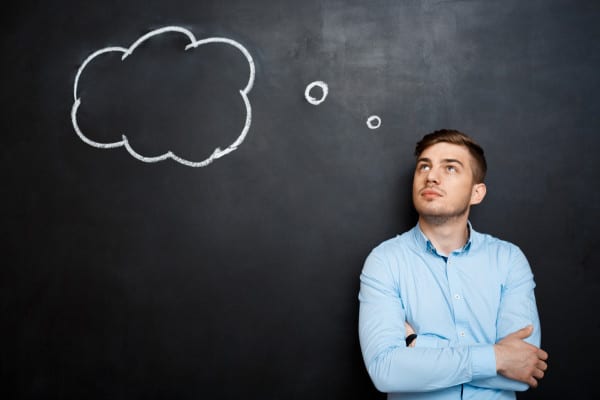
Memoir: You are not responsible for your first thought. Your first thoughts are usually pretty negative, but you are responsible for your second thought and the first action you take as a result of those.
It’s taken me a long time. I have a brain that is in extremes to things like, “After this person, I’m going to take off.” I did it for years. Now I know when my brain is thinking something extreme, it’s probably not reliable. I have people in my life that I run things by. I was many years sober. One of my best friends is trying to make a plan and he says, “I can fit you at 3:00 AM on Saturday.” I go to my boyfriend, “Can you believe that he said, ‘I can fit you in 3:00 on Saturday?” My boyfriend says, “He loves you. He’s trying to make a plan with you.”
My brain twists things. It hears insults where are they are not happening. That’s the greatest part of my recovery is that I get to understand that my brain doesn’t interpret things correctly at times and I need to reassess. I’ve learned that I’m not responsible for my first thought. My first thought is usually negative but I am responsible for my second thought and the first action I take as a result of those thoughts. I’m grateful for that.
Being in recovery and in twelve-steps sometimes I’m around people that have not worked a program and sometimes I cringe. I go crazy when I see the way that some people think. It’s like, “I’ve learned how to think. I’ve learned how to pause when agitated or doubtful. I’ve learned how to call my sponsor or call other friends in recovery. I’ve learned how to call somebody other than Tim. I need to talk to somebody else besides Tim about what I’m thinking because what Tim’s thinking a lot of times is crazy.” It’s taken one day at a time. The other thing I understand you say is, “What’s the long game?”
We have goals. We know where we want to go. However, right here, right now, it’s one day at a time, one minute at a time, one hour at a time. We need to head in that direction and continue doing the next right thing and next thing you know you’re writing a New York Times bestselling book. You’re on the stage of TEDx, on The Today Show, helping a lot of people like this book, Make Your Mess Your Memoir which is amazing. How did you come up with this book? Tell me about it.
I used to read strictly Matt Mars and I would come away with a lot of knowledge about a person but not practical information. I started reading a lot of business books and then I would come away with a lot of information but I wouldn’t be captured by the story. I thought, “What if I could combine the two? What if I could tell my story to make people understand why they should listen to the business advice that I’m going to give?” One day I remember I was driving to the dentist and that thought occurred to me and I wrote it down at a stoplight. I go with what is joyful? I don’t write books to make money or to just have them published.
I think like, “Does this bring me joy?” It did. I had a lot of fun writing it. I started writing it right when the stay-at-home order started, which was on March 13, 2020. I felt powerless, like everybody else and wanted to do something. I declared to my newsletter list and on social media, “I’m going to get on Zoom every day at 10:00 AM and write. Anybody who wants to join me can join me.” A bunch of people joined me and we did it every day. It turned into a membership program.
You got on Zoom and wrote. Help me understand. I don’t understand that. You all got on Zoom and you were all writing?
It’s a membership program that they do every day. One of my team members runs it. It’s called the Inner Circle and it’s about 40 people. The reason that they do it is that they need accountability and support. A bunch of them have already released their memoirs because I’ll help them know how to hire an editor, do a cover and then do a launch. It’s a daily accountability group. It was free for months. I realized that when people pay, they pay attention. If we started charging a fee then people would show up for it and it’s incredible. People have gone through many things in 2020 and it’s their support group.
[bctt tweet=”When people pay, they pay attention.” username=””]They don’t have many but some of them are sober. I had constant access to my readers. I had 40 people every day where I could find out what did they want to know about writing memoirs? What didn’t they know? I was able to infuse the book with actual information that I could gather from my readers. I also wanted to have a book that would show people what I could do, what my company could do. It blew our company up because I ended up getting on Good Morning America. I’m always correcting the misconception people say like, “You are a New York Times Best Selling Author. You must make so much money from book sales.”
I sold being on GMA for five minutes. I sold like a handful of books but I brought in six figures worth of new business from people because, ironically, when you show people how to do something in a book, they want to hire you to do it for them. Some people want to go do it themselves but other people want to hire you to do it for them. We brought in some incredible clients as a result and we’ve been able to release their books.
Who are the potential members that you’re looking for? Who would be a good candidate to join your membership club?
Our membership group only opens twice a year. That’s full. We’ll open up again in the spring of 2021. There’s an application form at LaunchPadInnerCircle.com and anybody can fill it out. We review applications in the spring and fall of 2021. That’s more something I do to help people. Our clients are all seven-figure entrepreneurs who either want to write a lot. We do a lot of recovery books because those are a lot of the people that come to me but it’s either memoir business or self-help.
It’s two completely different groups. One is aspiring writers who are creatives and then one is badass entrepreneurs who understand that the best marketing tool they can have is a book. That’s my audience. I should mention them on the show. I have a big podcast called Build Your Business With A Book. Every week I answer a question about everything from like, “How do you know what is a good cover?” to, “How do you write a New York Times Best Seller?” to, “How do you make money from putting an email address in a book?” That’s the main thing I do.
Writing a book is a great idea for anybody, for that matter. Make Your Mess Your Memoir and you have a lot of people that are in recovery that are going to be attracted to that title. Can someone read that book, take and run with it and write their own book?
Absolutely and publish their own book but I do recommend, listen to the podcast, ten-minute episodes and they are a good adjunct to the book. A lot of people deal with imposter syndrome. I go to my membership group once a month. I give a pep talk, we workshop each other’s books, I give feedback on what they’re writing and what I think a lot of people struggle with is, “Who am I to declare myself a writer?” I’m a big fan of, “Declare yourself whatever you want.” I am tired of the gatekeepers having to tell us, “You’re a writer. You’re an entrepreneur.” If you write a book and you release it, you have declared you’ve chosen yourself and anybody can do that. I highly recommend if you do not have experience writing, get professional help with it but go ahead, get started and see what happens. Use some guidance. I also provide a structure in the book for a ten-chapter format to follow if you’re writing a memoir.
You’ve got your business and podcast. What else do you do in your life?
Many things. I meditate twice a day, twenty minutes in the morning and twenty minutes in the afternoon. I have this kitten who likes to bite my feet and my hands when I’m meditating. She’s cutting it short. I’m a huge exercise fan. I’m doing this bizarre, unusual form of exercise. My boyfriend built a gym in the garage and there’s a ballet bar called GST. It’s a fascia stretching workout of all LA-sounding weird things. That’s what I do every day. It gets you in crazy shape and it gets rid of any physical pain one might have. I love walking to the Hollywood sign here in LA. That’s something every day that it’s sunny I do. One of the things I picked up in pandemic time is bike riding.

Memoir: Ironically, when you show people how to do something in a book, they want to hire you to do it for them.
Walking to the Hollywood sign, is that a trail or a walk on the street?
You can’t walk up to the sign but you can visit this gorgeous trail. You can walk on the road. I discovered this bike ride where it goes around the same loop and then I picked up painting in the pandemic. My thing is that I do paintings for people. I lack in talent and I make up for it in cleverness. It was my friend’s 50th birthday and I painted her a picture of her dog thinking, “Why does everyone ask me to recite poetry?” It’s a picture of her doing yoga. I do a lot of things but I also work a lot because I love working.
I work a little bit as well. I’ve got the ism for sure. I enjoy it. When we were drinking and doing drugs, that consumes a lot of our life. My experience and what I’ve seen is that the only way to successfully be in long-term recovery is you have to find new things to do, new hobbies, new interests, new friends, new things like for you. You meditate in the morning, you meditate in the evening. I do breathwork, journal, work out every day, eat healthily, get enough sleep. All of these things, my life is filled with healthy relationships. My life is full and your life sounds like it’s full also.
I think because I’m work-obsessive for a long time, I felt bad that I didn’t have hobbies. I can sit in front of the computer for eight hours straight and not even notice. Life is full. I remember when I first got sober, I remember thinking like, “I can get into all these things.” I went and bought rollerblades. The first Halloween when I got sober, I said, “I’m going to become one of those people who makes her own costumes. Why not? I’m sober now.” I decided to be a candy cane. I bought white pants and was sewing red fabric on them. I’m like, “It’s because I’m sober does not mean I have to do it everything.” I was excited to be among the living again.
Also, remembering what you did yesterday.
When you did cocaine, you unfortunately remember everything, blackout. The thing is I do think also that is what helps me so much. I’m lucky that I remember how dark those coke days were. I do not delude myself into thinking, “I could go back there and that would be okay,” because I remember wanting to die all the time. I remember it like it was yesterday.
Tell me about your morning routine?
One of my books was The Miracle Morning, which I wrote with Joe Polish. I do my miracle morning every morning but I do my own variation of it. When my boyfriend stays over, I get up two hours before him. I am one of these people who pops out of bed like the Energizer Bunny. I’ve learned from him that’s unusual. I get up and read a newsletter that a friend of mine writes. His name is Jeff Kober. Everybody should go and subscribe to his newsletter. He’s a meditation teacher but he’s one of the best writers. He’s in my membership group. He’s a member of the Inner Circle.
[bctt tweet=”Remember that how you feel today is probably not how you’re going to feel tomorrow.” username=””]I read his newsletter and then I meditate. I learned a form of transcendental meditation called Vedic meditation. I pray for the same thing every day and that is because I had a powerful experience during my 6th- and 7th-step. I am riddled with the desire to emotionally punish people. It rules my universe. Every day I have to pray, “Please help me not be punishing because it’s so subtle and insidious and I don’t even know I’m doing it.” I installed this plugin on my mail called Mailbutler and it delays emails ten seconds when you send them so that when I start to write a passive-aggressive thing, I can stop it. It’s amazing. I’ve never been punishing with you.
You have not with me but I can see it. We’ve had enough conversations to where I can see that.
I have to pray not to be judgmental because I’m extremely judgmental, which goes with punishing. I judge and then I decide to punish. I pray not to be jealous because that’s when that’s been creeping up. That’s what I do then I immediately go for the coffee and I go to the computer.
Tell me about your coffee.
I don’t do anything bulletproof or fancy. I have regular Starbucks or Dunkin Donuts coffee, lots of milk, lots of sugar. Standard coffee.
Do you coffee every day?
I do. I feel okay about it. I did increase from 1 cup to 2 but I’m not one of these people who’s like, “Caffeine is ruining my life. Sugar is ruining my life,” gluten, gut issues. I have plenty of physical issues but it’s not that stuff.
Two cups of coffee. I was going to ask you if you drank coffee alcoholically but you answered the question. You went from 1 cup to 2. Are they like 24- or 32-ounce cups?
They’re big. It’s not ideal.
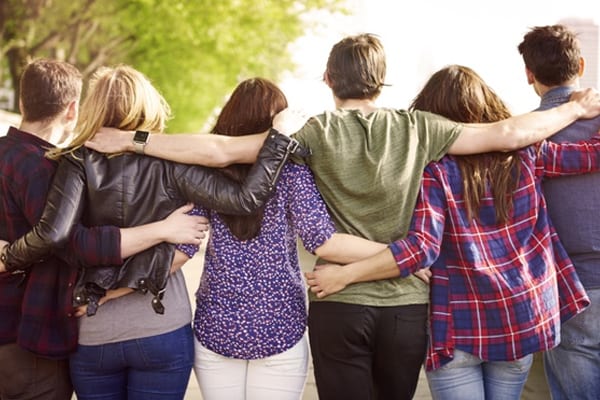
Memoir: The only way to be really successful in long-term recovery is finding new things and hobbies to do, new interests, and new friends.
It is ideal because that’s what you do. There’s no problem.
I don’t have a problem with that. I do get headaches and I bet if I quit caffeine and sugar, I would not get headaches.
If you quit caffeine, at least in the short-term, you wouldn’t have headaches.
After the withdrawal was over, I would not get headaches and I’ll take my little treats where I can get them.
You said you’re not gluten-sensitive. What is your diet like?
It could be better. In the morning, I have a cauliflower tortilla with one egg and some protein. It’s delicious.
Do you make the cauliflower tortilla or do you buy it?
I buy them somewhere.
I’ve never seen cauliflower tortilla. What brand are they?
[bctt tweet=”The universe has a much better and longer plan for you than you have yourself.” username=””]I forget what it’s called but you go to Erewhon, which is this completely overpriced grocery store in Los Angeles. I don’t know if it’s anywhere else. I buy them out and freeze them. I buy 60 at a time. I make a fake pancake, which is an egg, one scoop of no-fat yogurt, one scoop of wheat germ or bran and whisk it together. It’s delicious and then I have a bowl of cereal. I’m a big breakfast person. I have that over a period of a few hours. I’ve had the egg and the cereal but I haven’t had the pancake yet.
Have you picked up a waffle maker yet?
I have a waffle maker.
I made waffle omelets. They were amazing. We do waffle Wednesday at our homes. We do inspections on Monday or Tuesday and whoever gets the best score, me and one of my other admin staff members, go over to the house and we do waffle Wednesday. We went up to the Oasis, which is one of our homes in North Scottsdale. Nina, my program director, said, “They want to do waffle omelets.” I was like, “Let’s check it out.” You can make waffles out of anything. Sure enough, eggs, all the fixings and then you put them in the waffle maker. I went up there and I made an omelet station at a hotel. I put peppers, jalapenos, pam, tomatoes, avocado, mushrooms. I had all this stuff. I whisked it all together, two eggs, all the fixings and then you cook it for two minutes.
I have an avocado and mushroom.
It was amazing. If you want to put cheese on it, after you’re done with it, you can do that. In one of the omelets, I put a little bit of the almond flour and oat flour, which is the mixture that I used to make waffles. I put less than a quarter cup of it in with the eggs and it helped it fluff up. It’s like quiche. The waffles were amazing. I’ll be doing it again.
My boyfriend loves to cook. I’ll have him cook me all this stuff on the weekends when he’s here. I get to eat it all week. He’ll make spaghetti squash, homemade sauce and meatballs. I can have that all week, steak, chicken, we got an air fryer. That’s a big thing, air frying chicken. That’s how I eat. I’m a big fan of Kettle Korn and having a little chocolate every day.
To people walking away from this, what message do you want them to have heard in our talk?
[bctt tweet=”One of the most efficient ways to help other people is to write your story out and share it with them.” username=””]If you are toying with the idea of getting sober, know that it’s nothing like you expect it to be. Whatever these expectations are, they’re wrong. Remember that how you feel now is not how you’re going to feel tomorrow. If you walk into a meeting or go log on to a Zoom meeting and think, “This sucks. These people are freaks. I’ll never come back here.” Those feelings can change. If you are sober and wondering why you don’t have all the things you want, that’s happened to me many times. It’s always when I forget that I’m impatient and that the universe has a much better and longer plan for me than I have for myself. If you think, “Why did I have to be an alcoholic? Why did I have to have trauma? Why did I have to go through this?”
Perhaps, it is so that you can help somebody else. One of the most efficient ways to help other people is to write your story out and share it with them. You can help people globally rather than one-on-one. You deserve to tell your story. People will always say to me, “There are many addiction recovery members out there. My story is not that special.” I say, “My story is not interesting and I’ve made it into eight books and dozens, if not hundreds of articles.” You’ve got a story, share it and keep doing what you’re doing. Stay sober. Live the dream.
It is living the dream and I can attest to that. You can attest to that.
It’s a life far bigger than I ever could have imagined.
How can people find you? What was the name of your podcast?
It’s called Build Your Business With A Book. Everything is on Launch Pad Pub but if anybody is thinking, “I want to write a book but I don’t want to be broke,” they can go to BookBuildBiz.com and find out, “How have I been able to build a seven-figure business by writing a book?” Go do all the things that we do for our $60,000 clients. That is available. That’s the best way. I’m also on Instagram @AnnaBDavid and the places. I’m at Clubhouse.
I’m at Clubhouse too. I still haven’t figured it out. I get notifications all day long, though.
Thanks so much, Tim. Thank you for having me here.
Anna, thank you so much. I’m grateful that you got to spend time with us. Thanks for reading and I hope you have a wonderful day.
Important links:
- The Miracle Morning,
- Jeff Kober
- Mailbutler
- BookBuildBiz.com
- @AnnaBDavid – Instagram
About Anna David
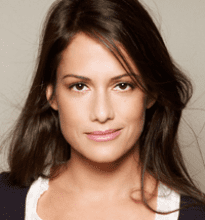 Anna David transforms entrepreneurial thought leaders into bestselling authors so they can attract higher-quality clients, become go-to media sources, land speaking gigs and grow into being the leaders in their field.
Anna David transforms entrepreneurial thought leaders into bestselling authors so they can attract higher-quality clients, become go-to media sources, land speaking gigs and grow into being the leaders in their field.
A New York Times bestselling author of eight books, David has shared the stage with Tony Robbins and has spoken at three different TEDx events, all of which are featured on the TED site. For over a decade, she’s toured colleges around the country, speaking and educating students about alcoholism, relationships and writing.
She’s written for The New York Times, Time and The LA Times, as well as many publications without the word “Time” in their title. She has appeared repeatedly on The Today Show, Good Morning America, The Talk and The CBS Morning Show, among others, been written about in publications like Forbes, Entrepreneur and Women’s Health.
Her first book, Party Girl, has been repeatedly optioned for film and TV, most recently by the producer of Scorsese’s The Irishman.
Over a decade ago, The New York Post declared that she invented the subgenre “chick lit with a message” and she’s still trying to decide if she should be offended by that or not. In the meantime, she obsesses over helping her clients achieve from their books what she’s achieved from hers.
